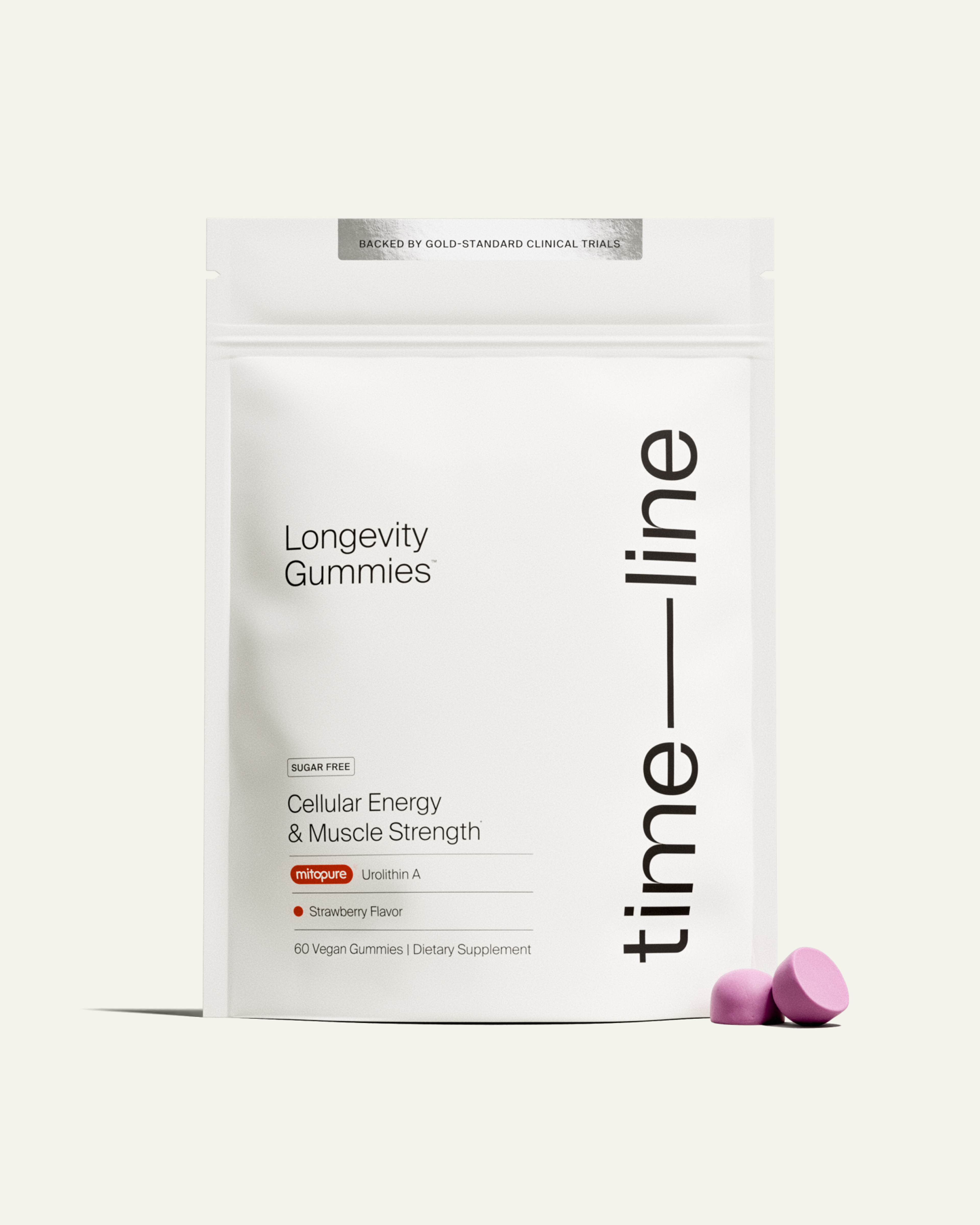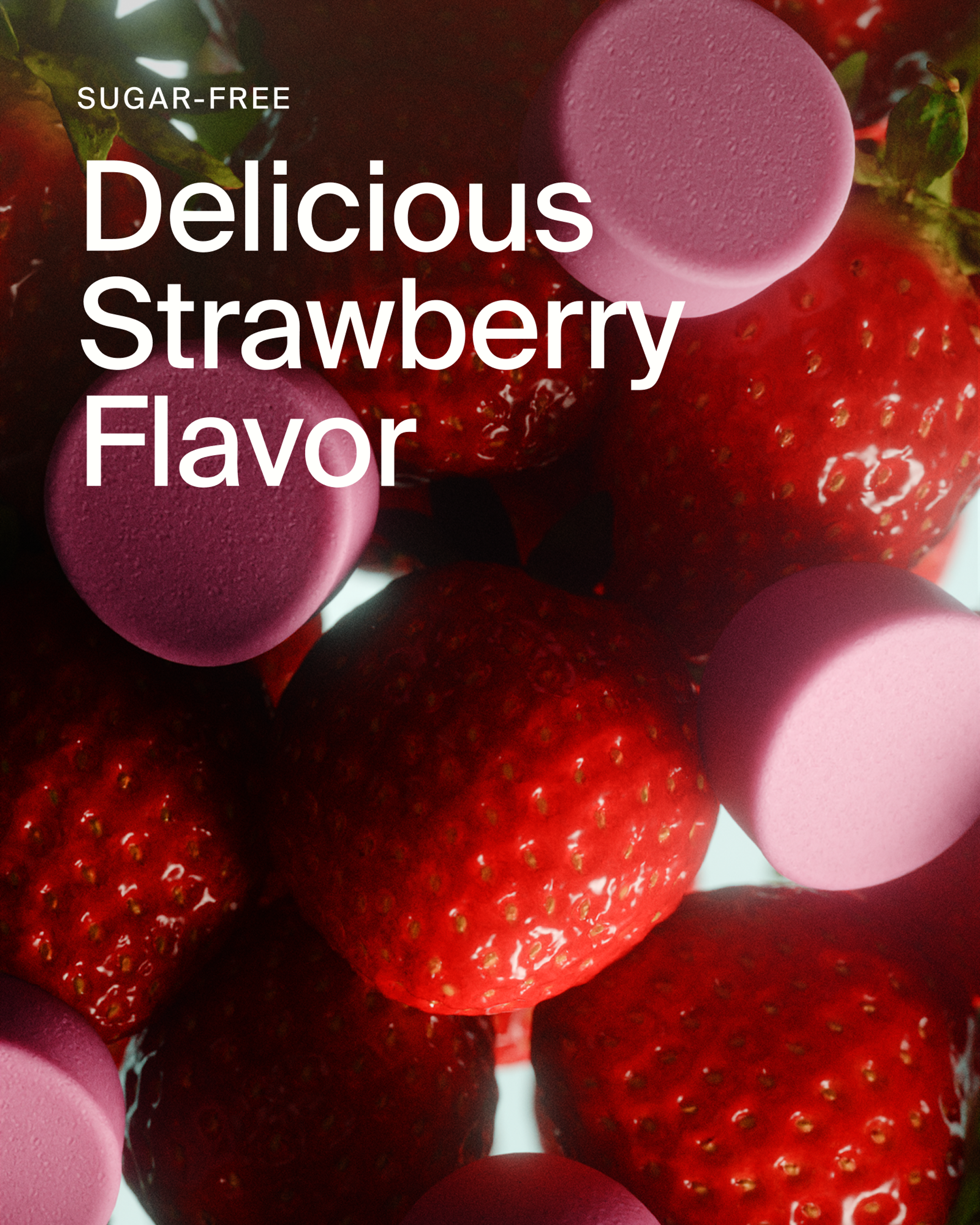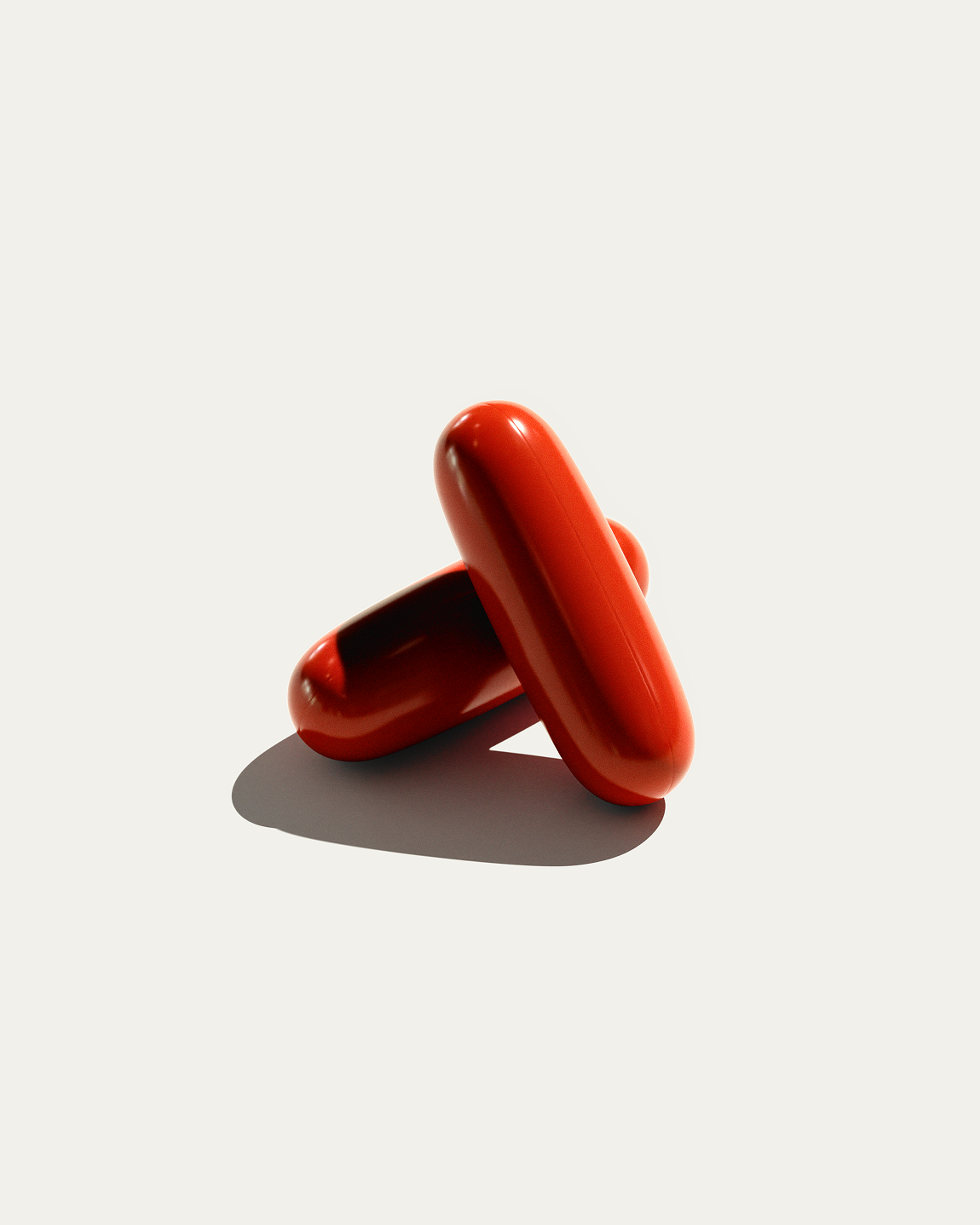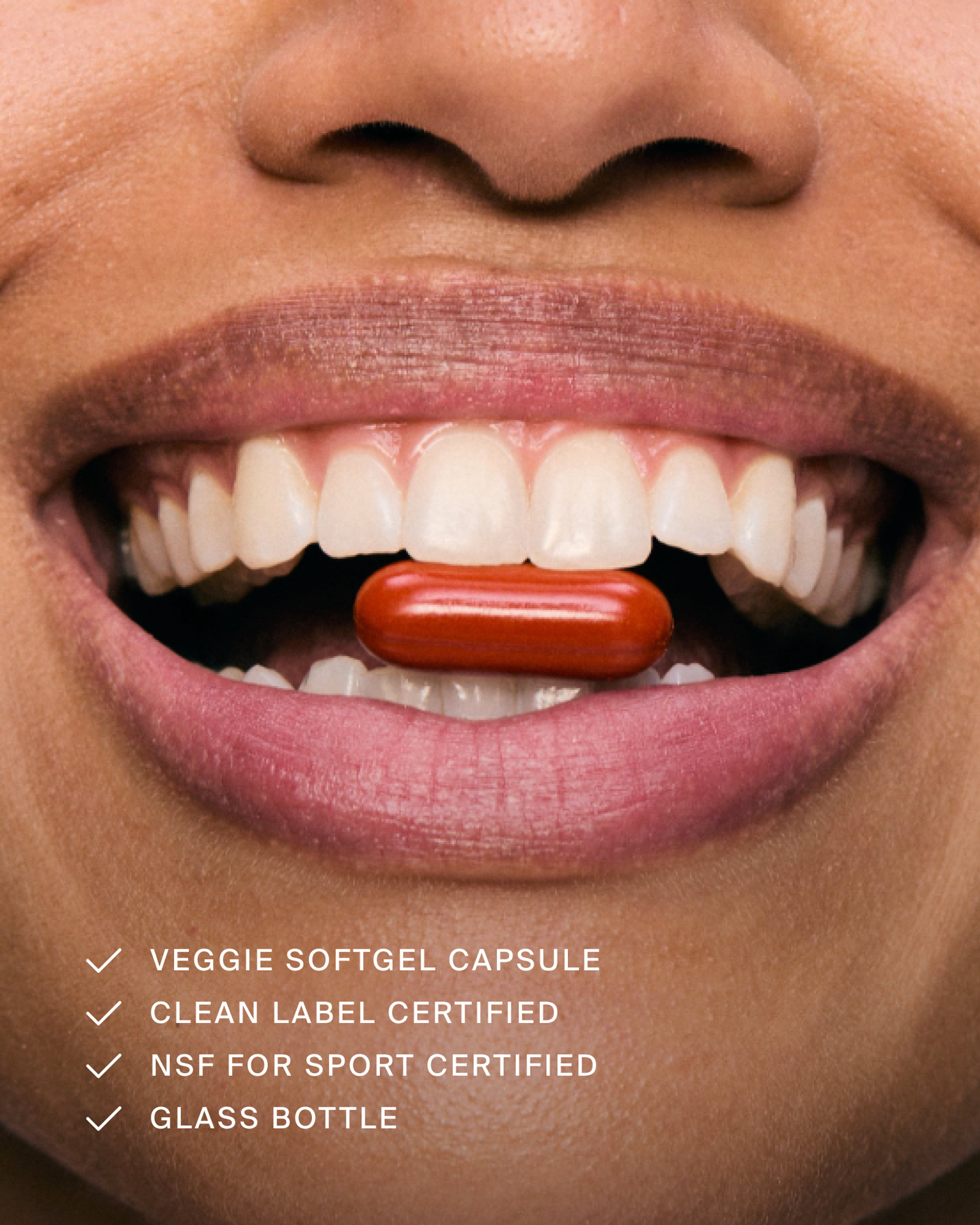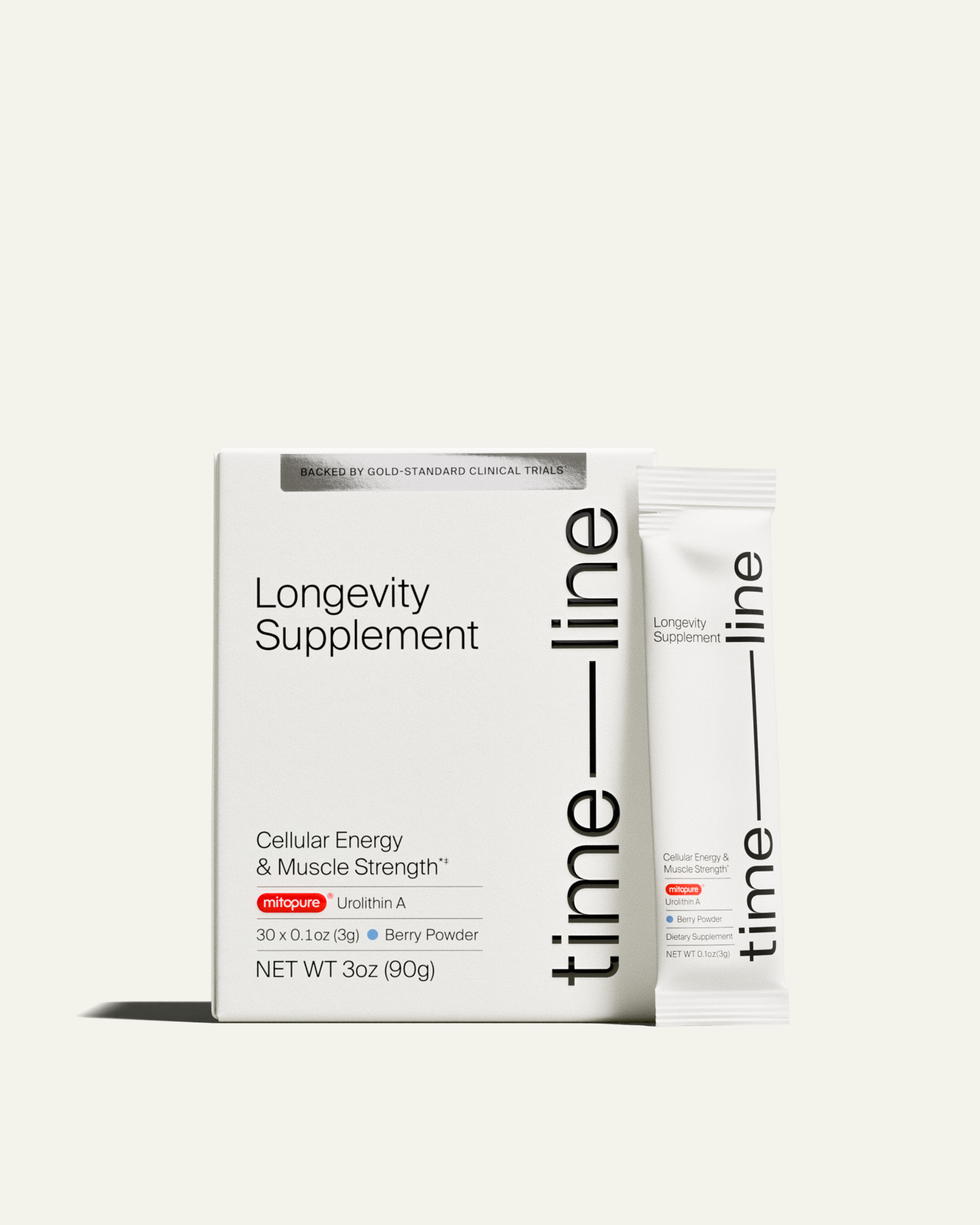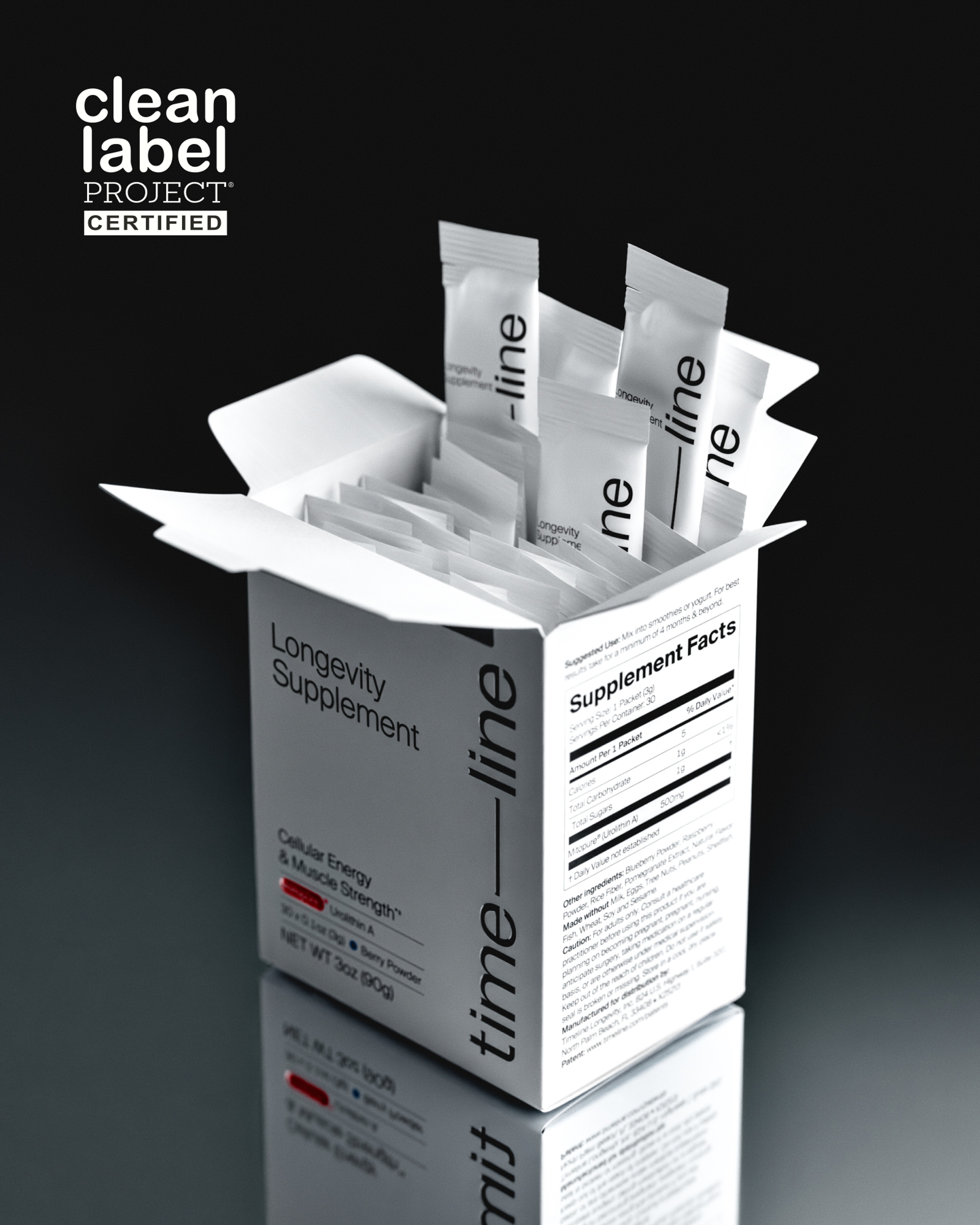Understanding the Biology of Aging with Evolved Nutrition
Dr. Anurag Singh joins Cynthia Thurlow to dive into the hallmarks of aging, what accelerates aging, and what we can do to address aging proactively.

Dive into the key biological hallmarks of aging and what we can do to address aging proactively. Learn about mitochondrial health, the gut microbiome, supplementation, and the differences between prebiotics, probiotics, and post-biotics.
Topics covered
- Key biologic hallmarks of aging
- How lifestyle can impact mitochondrial health
- How Urolithin A works
- The research behind Urolithin A
- How modern life impacts our gut health
Transcript
- Cynthia Thurlow
- Welcome to Every Day Wellness Podcast. I'm your host, Nurse Practitioner, Cynthia Thurlow. This podcast is designed to educate, empower, and inspire you to achieve your health and wellness goals. My goal and intent is to provide you with the best content and conversations from leaders in the health and wellness industry each week and impact over a million lives.
- Cynthia Thurlow
- Today, I have the honor of connecting with Dr. Anurag Singh, who is the Chief Medical Officer at Timeline Nutrition that helps develop next-generation advanced nutritional and skincare products targeting improvements in mitochondrial and cellular health. Dr. Singh's background is in internal medicine and immunology. He has authored greater than 40 articles for top science journals, been awarded greater than 15 patents, and has designed and led greater than 50 randomized controlled studies.
- Cynthia Thurlow
- Today, we dove deep into his background, key biological hallmarks of aging are mitochondria, what accelerates aging, how we can proactively address this, the role of sarcopenia with aging and mitochondrial health, the impact of the gut microbiome, the role of Urolithin A and supplementation, the differences between pre, pro, and postbiotics, and lastly, the benefits of Mitopure, and the research behind it.
- Cynthia Thurlow
- This is a supplement that I've taken over the last several years and I feel is been instrumental in helping to improve and maintain mass and strength of my muscles. There's emerging research specific to brain health and cognition, immune and metabolism, and also topical applications of Mitopure. I hope you will enjoy this conversation as much as I did recording it.
- Cynthia Thurlow
- Dr. Singh, it's such a pleasure to connect with you. I've really been looking forward to this conversation.
- Dr. Anurag Singh
- Same here. Thanks for having me.
- Cynthia Thurlow
- Yeah. Obviously, I know quite a bit about your background and your work, but for the benefit of listeners, explain it to them how you started in internal medicine with this immunology research background. How did you get to where you are today?
- Dr. Anurag Singh
- Yeah, so I started out pretty young in the internal medicine field. I was a young medical intern in my early 20s even. Then I was always fascinated by the field of medicine, but I always felt like medical doctors were taking a very later approach to symptom management and not really figuring out what they could intervene early on in the process of the disease, when the first pillars of a disease, symptomatology are forming.
- Dr. Anurag Singh
- That led me to the US, where I trained probably one of the top immunologists at that time who really educated me on how to become a physician-scientist. I was also lucky to have a co-mentor. I was trying to figure out how a compound from pineapples was a very potent anti-asthmatic compound, and that got me into the natural product space. From there, I ended up doing a lot of research in gut microbiome that the journey led to the discovery of this postbiotic we'll talk about.
- Cynthia Thurlow
- It's really exciting, and I think for so many of us, we might start in a more traditional world within the medicine community. Then as we become more seasoned or more invested in the research, we acknowledge there are limitations to the traditional allopathic paradigm as it pertains to prevention of disease. That's why I find your research, in particular, to be so interesting. I haven't really had an expert on speaking to the changes that go on with aging, the hallmarks of aging. Since people start the conversation there, there are some very well-documented biological hallmarks of aging that I think might be interesting to, from a 30,000-foot level providing some context for the conversation.
- Dr. Anurag Singh
- Yeah. The whole field of aging today is segmented into two camps. One that is more proponent towards lifespan extension, and the other is more of a health-span extension. If you look over the last 10, 15 years, we certainly know the different biological pathways that you can modulate with nutritional interventions, with exercise, with dietary restriction like intermittent fasting, and with nutrients such as either NAD modulators or the postbiotic we talked about.
- Dr. Anurag Singh
- The way I see it is really before... Now these were nine hallmarks of aging before all targeting very complex biological process. If you really look at what are those out of those pathways, ones that you can modulate to have a health impact. The one key one is mitochondrial health. Just for your listeners, mitochondria are like your Tesla batteries that are producing energy. With aging, we all feel fatigued, et cetera. You can actually reverse some of the mitochondrial dysfunction. That's where we feel we are positioned very well.
- Cynthia Thurlow
- Well, and I think it's so important for listeners to understand that some of this is under our own control, whether through lifestyle-mediated factors, meal frequency, nutrition, as you mentioned, exercise, supplementation, all can be very helpful for preserving, maintaining the health of the mitochondria. Because most of Americans, because that's the research that I'm most familiarized with, but most Americans, by the age of 40 have mitochondrial dysfunction. It's really at the basis for most chronic disease states we see here in the United States, and I would imagine in most Westernized countries.
- Dr. Anurag Singh
- Yeah. When we started out studying the mitochondria and context of aging, there was already literature out there that in your 70s and 80s, that mitochondria were declining in organs that have a lot of abundance of mitochondria, which is your muscle, skeletal muscles, your cardiac muscle, or your brain.
- Dr. Anurag Singh
- then we start even looking younger in the 40s and 50s, and we would find already the signature out there. You mentioned the two pillars of health is really diet and exercise, but I think that cellular health and really nurturing good cellular health is the third pillar. That's why we believe that targeting improved mitochondrial health can have bigger impact down the road and even delay some of the comorbidities that happen with aging and improve our lifespan. You're in the 80s and very mobile, and you can play with your grandchildren.
- Cynthia Thurlow
- I think that's so important. It was interesting when I was pulling up statistics for our conversation. 8.5% of the world's population is greater than 65. I'm thinking about my parents' generation, and they have these age-associated comorbidities. The things that we think are normal, that people have chronic pain, people have poor sleep, people have weight loss resistance, diabetes, metabolic poor health, unfortunately, there's this prevailing, limiting belief that these are just a normal byproduct of aging, and yet they don't need to be.
- Dr. Anurag Singh
- I fully agree. Trained as a physician, they're not teaching good nutrition in medical schools or other healthcare practitioner training. This is a lesson I learned after my medical school that nutrition has such a key role in everything we do. Our gut microbiome is absolutely the foundation of good health and linked to inflammation, linked to poor mitochondrial health and poor even nutrient absorption. Yeah, I totally agree with that, that improving mitochondrial health can have really impactful changes in our lives.
- Cynthia Thurlow
- What do you think are some of the biggest confounding variables or the biggest contributors to accelerating the aging process? In a traditional Westernized society, what are the things that stand out to you that are of greatest concern?
- Dr. Anurag Singh
- Well, our diet is definitely number one. We are all not nourishing our gut microbiome health. We're not all eating a lot of fruits and vegetables, and we'll get into it. We've looked into the gut microbiome of different populations, the French, the Canadians, the Americans, and the gut microbiome of, I would say, is the richest in places where Mediterranean diet is followed as a practice. In the US and Canadian healthy adult population, the gut microbiome is not very rich, not very diverse. I think that's the central tenet.
- Dr. Anurag Singh
- Then inflammation is another one. We see a lot of healthy adults who are, let's just say, not symptomatic of a disease, but if you just take a little blood and look at their blood levels of something like C-reactive protein, they are super inflamed. Being overweight is another inactivity is the second we touched upon that. Those really boil down to this accelerated aging, which we are seeing even earlier now today in the 50s and 60s. As you said, the population is growing older and older. There will be a point where we'll start to think about how can nutritional interventions delay some of the health, economic impact.
- Cynthia Thurlow
- Well, and it's interesting. For context, my entire background as an NP up until seven years ago was cardiology. I got to see, more often than not, people who had already gone on to develop chronic inflammatory vascular disease. I would sometimes try to find an angle with patients to convince them that the lifestyle piece was equally as important as taking their medication. Occasionally I would have someone that would say to me, "Cynthia, I'm not going to sleep more. I'm not going to stop smoking. I'm not going to change my diet. Just give me the pill and let me go on my merry way."
- Cynthia Thurlow
- I really think that on so many different levels, we've done patients such a tremendous disservice. I think about the pharmaceutical industry that spends millions and billions of dollars a year trying to market to consumers instead of saying, "Hey, instead of taking additional diabetes medication, what you really would benefit from is eating less often, moving your body and eating less processed foods." It really is that simple, but we make it more complicated than it needs to be.
- Dr. Anurag Singh
- Two hundred percent totally agree. If all cardiologists or even geriatricians, or even just your family doctor is telling you to eat, practice a bit of intermittent fasting, do your eight, 10,000 steps a day, that already, just those two things have massive, massive healthcare impact. Of course, there's no incentive to our healthcare systems to do that.
- Dr. Anurag Singh
- I train as a medical doctor where I can see you see a few patients a day and the wider etiology and the symptomology, but you're not thinking at a big picture. That's one of the reasons why I got into research, actually, was whatever I'm working on should impact hundreds and thousands of people eventually. That's yeah, exercise and diet is not the easiest to comply with. I think that's probably the number one problem with these interventions. To tell an older adult to do three days of 30-minute walk is easy to say, but not the easiest to comply with long term.
- Cynthia Thurlow
- My third co-branded supplement with MD Logic is Alpha-GPC. It has many cognitive-enhancing effects. It plays an important role in cognitive function, which includes supporting memory, attention, learning, and helps to optimize brain function. It's time to supercharge your cognitive abilities and take your brain function to the next level. I have been using Alpha-GPC for the last six months in lieu of caffeine, and it has been a total game-changer. My entire family is using it, including my 15-year-old with tremendous benefits.
- Cynthia Thurlow
- What I love best about MD Logic is that it has extensive lab testing. It is a GMP-certified facility based in the United States. They undergo multi-stage lab analysis, and all of their products are tested for purity, strength, composition, compliance, safety in a climate-controlled environment. The best way to grab Alpha-GPC, my third product co-branded with MD Logic, is to go to www.cynthiathurlow.com/alphagpc. Again, www.cynthiathurlow.com/alphagpc. We've had such an incredible response to our first flight of Alpha-GPC, it's going fast.
- Cynthia Thurlow
- Our next podcast sponsor is AG1. AG1 is a product I take several days a week. It's one of my favorite ways to break my fast. I take it predominantly to simplify my supplement regimen. As a byproduct, it also tastes great as most green powders that are on the market are impalatable. AG1 is way more than greens. It contains prebiotics, probiotics, and plant-based enzymes to help support digestion, regularity, and overall gut health.
- Cynthia Thurlow
- Certainly, over the last several years, after being on long-term antibiotics, post-hospitalization, I am consistently working on gut health. It is something I work on every day, and AG1 is an integral part of this. We know it also contains plant extracts, adaptogenic herbs, and antioxidants. It also provides a daily dose of vitamin C, zinc, functional mushrooms, and more support overall immune health.
- Cynthia Thurlow
- If you want to take ownership of your health, today is a good time to start. Athletic Greens is giving you a free one-year supply of vitamin D and five free travel packs with your first purchase. Go to athleticgreen.com/ewp. That's athleticgreens.com/ewp. You definitely want to check it out.
- Cynthia Thurlow
- For anyone that's listening, lifestyle changes are not meant to be easy. If they were easy, everyone would do them. Sometimes it can be as simple as you stated, taking a walk after dinner, 10 or 15 minutes, we know it can help with insulin sensitivity and reduction in blood sugar and glucose.
- Cynthia Thurlow
- yet, we've... And maybe the pandemic, I know for sure, has contributed to this. I think on a lot of levels, we've gotten so conditioned to be very hedonistic. We want everything right away. We want to lose weight instantaneously. We don't want to do the work. I think a lot of that is human nature, and things are so easy now. I think of the example I have teenagers and unbeknownst to my husband and I during the midst of the pandemic when we weren't really going anywhere, they were doing Uber Eats at night when we went to bed, and things are just too easy.
- Cynthia Thurlow
- It's easy to get access to foods we probably shouldn't be eating. It's easy to get access to binge on Netflix. It is much easier to sit at home or sit all day long than it is to move around. I think for so many people, once they make those lifestyle changes, they feel so much better. It just reinforces the good behavior. It's finding one thing you can do a little differently every day to contribute to health and longevity.
- Cynthia Thurlow
- Now, when we talk about proactively impacting mitochondrial dysfunction, you mentioned fasting, but what are some of the other lifestyle pieces? Maybe things we haven't talked about in terms of hormetic stressors that can be of benefit to the mitochondria that can make our mitochondria more resilient?
- Dr. Anurag Singh
- Well, I think the top five would, of course, starting in the order would be diet. If you're all eating a good antioxidant-rich diet, we call those polyphenols, these are complex nutrients that are in our diet. If you're eating a lot of berries and nuts that are known to have antioxidant effects, those are good for your mitochondria. Mitochondria do accumulate what we call a lot of oxidative stress. Think of them like turbines or Tesla batteries that are working all the time in the background and they get damaged. That's part of the problem that if you're not feeding the right nutrients to these mitochondria, to the cells, and then less stress.
- Dr. Anurag Singh
- We all talk about the blue zones where people live till 100, 120. They really have three or four things that they're getting a lot of sunshine. Probably vitamin D is the key. They're moving around a lot because in these islands, Japan or Costa Rica, the five zones, certainly physical activity levels is not a problem. They are eating fresh, as I say, farm-to-the-table food and less stress, and sleeping better. Those are things that the circadian rhythm has a big impact on their mitochondria.
- Dr. Anurag Singh
- Then I believe that the fifth is really where the research is headed is really these advanced nutrients that have an impact on mitochondrial health. Together, some of these four or five exercise and diet, obviously the two key ones.
- Cynthia Thurlow
- Yeah, and it's interesting because these advanced nutrients that you're alluding to are things like NAD, and NR, and Urolithin A. Maybe it would be helpful to differentiate how these three advanced nutrients are different from one another. Because I think there's a lot of misinformation, especially about NAD and NR, in particular in the blogosphere, on social media, but may be helpful to differentiate how they are different from one another and how they benefit us too, in terms of repletion.
- Dr. Anurag Singh
- Yeah. I think for that, I think a very simplistic view of a mitochondria's lifecycle is needed there. A young, healthy mitochondria is producing the currency of energy, which is what we call is ATP, all the time in the background. Some more, mitochondria, things like muscle and neuron cells have thousands of mitochondria. As they're young and healthy, they also will in parallel accumulate damage, what we call oxidative stress or free radicals, and their architecture starts changing. We have looked at old people's mitochondria and it's really like electrical wires and they just start sagging inside the mitochondria.
- Dr. Anurag Singh
- What happens is some of the faulty ones then are labeled or tagged to say these are the faulty ones and your body needs to recycle them. That's what slows down with aging. What happens is basically instead of always having a good pool of healthy and unhealthy mitochondria, your cells shift towards a bigger pool of unhealthy mitochondria. Typically, what things like NAD modulation or things like NR or targeting is basically a boost in NAD production, which will then lead to more neuro-healthy mitochondria. Putting that in picture of a mitochondrial lifecycle.
- Dr. Anurag Singh
- There are other nutrients like CoQ10 and creatinine for et cetera that are also targeting. They take a healthy mitochondria and make it produce more energy. Now you have more energy efficiency. What has never been taught only intermittent fasting or regular exercise was known to activate this process that is called mitophagy.
- Dr. Anurag Singh
- Mitophagy is the final end of this mitochondrial lifecycle. If you're not cleaning out the waste and all these faulty mitochondria accumulating in the gut of your disposal then, then your cells don't look right. That's what happens basically with all our aging cells. Where we have spent good part of 10, 15 years of research is figuring out how to activate mitophagy during the aging process that can then clean out the waste and result in more healthy, newer mitochondria that then you can use NAD supplementation on top. That's how we approach mitochondrial health improvements.
- Cynthia Thurlow
- I think that's probably one of the best, most concise explanations that I've heard yet. Thank you so much for that. I think it makes the science accessible to listeners, and they're very familiar with the concept of autophagy. Mitophagy is talking about this specific to the mitochondria, the waste and recycling process of disease-disordered organelles that we're getting rid of.
- Cynthia Thurlow
- I mentioned Urolithin A. Obviously, this is something that I think is really exciting in terms of not just as an advanced nutrient, but potentially what it has the ability to do within the body. How does it work, and how is it discovered?
- Dr. Anurag Singh
- Yeah, it was discovered over 15 years of very hard biotech approach to nutrition. When we started here at Timeline, the whole concept was to bring the biotech approach to nutrition to really understand how some of these nutrients in our diet were impacting cellular and biological hallmarks of health. A lot of times in nutrition, everybody was blending nutrients and probiotics and prebiotics and starting to selling as multi-pronged approaches. We said let's change that.
- Dr. Anurag Singh
- We started with a high throughput approach where we took thousands of look at compounds and our everyday fruits and nuts. We started deconstructing the pomegranate, for example. Now, pomegranate has about 500-plus bioactive compounds in it, and we narrowed it down to a group of polyphenolic compounds, much like antioxidants, that are called punicalagins or ellagitannin. These are just not in pomegranates, these are in your pecans and walnuts. These are in your raspberry and other red berries. For long, there have been studies in pomegranate juice and berries and walnuts having these great health benefits similar to Mediterranean diet.
- Dr. Anurag Singh
- We started looking at them and we found that independently, a lot of these bioactives were not having an effect. Then we started looking at the gut microbiome transformation, which is needed to take these complex polyphenolic bioactives and break it down into simpler, what we call postbiotic molecules. That led us to the Urolithins, which are one of the most prominent and produced byproducts from the gut microbiome is Urolithin A. We found that this had some remarkable effects, and a lot of this research was done with the Swiss Institute of Technology, where we are based here. Basically showing these remarkable effects in muscle, and urine, and energy production that led us to the whole journey.
- Cynthia Thurlow
- It's really exciting because I think listeners are familiar with prebiotics and probiotics, but a postbiotic is probably terminology that they are less familiarized with. How do you find the differentiation in terms of looking at each one of these? How does a postbiotic differentiate from a pre- and probiotic?
- Dr. Anurag Singh
- Yeah. The simplest, if I can break it down, prebiotic is food for your gut microbiome. Basically, it's the breakfast, lunch, and dinner that you need to give it to your gut microbiome.
- Dr. Anurag Singh
- The probiotics are things that you would like to see it as a part of your gut microbiome ecosystem. You want more healthier bacteria in your gut microbiome.
- Dr. Anurag Singh
- Postbiotic is basically the end product. After from the foods and nutrients we are eating, what the probiotics are harnessing and releasing, which are beneficial to us as the human host, is what is postbiotic. These are bioactive molecules that have immense benefits for us who are hosting the gut microbiome.
- Cynthia Thurlow
- It's my understanding that these help to stimulate mitophagy. The big picture is these postbiotics are helping to stimulate mitophagy, autophagy, getting rid of these disease-disordered cells.
- Dr. Anurag Singh
- Yeah. There are a number of postbiotics. Typically centered vitamin B or vitamin K is a postbiotic because you require your gut bacteria. Now, I don't think all postbiotics will stimulate autophagy or mitophagy. There are things like short-chain fatty acids. Yrate, propionate, they are known to have big impacts on cellular metabolism. Now, Urolithin A is a postbiotic, and what we found was that it was triggering this very specific form of autophagy that I had described previously, which is specific to mitochondria called mitophagy.
- Cynthia Thurlow
- Yeah, it's really interesting. In terms of your research and how you've been looking at Urolithin A, how did Mitopure come about through that process? Because I'm sure it was very exciting to realize that there was all the potential, and how did Mitopure come out of that research?
- Dr. Anurag Singh
- Yeah. Urolithin A, when we started out had been described as being present as one of the byproducts that nobody had really paid attention to it. It was known to be in Iberian ham because they were eating a lot of acorns and things like this. When we took a closer look, we started...
- Dr. Anurag Singh
- Aging has always been our focus. The Timeline has always been a longevity-focused company. We started in worms. These are the first species you would do your first experiments with to really tease out what is the key nutrient out there. Compared to, let's say, ellagitannins or even other nutrients, Urolithin A—or, as we had trademarked that Mitopure—was shown to have about a 40-50% increase in lifespan in these worms. That was the moment that led us to take it even forward to older experimental models, where we would give it in the daily diet of older rodents and we would start seeing them being 60% more enduring and having about 10, 15% better muscle strength. That led to the whole journey of multiple randomized trials.
- Dr. Anurag Singh
- We started out actually with two key studies, which I think are absolutely key to how nutrition field needs to do research. First, we actually went and asked the question, can we measure mitochondrial health during the aging process? We were able to show that in 70-year-olds who were running marathons versus 70-year-olds who had difficulty moving around, that if we took a look at their muscle, their mitochondria were very bad in those we call as frail people versus those who are running marathons.
- Dr. Anurag Singh
- Then we took a look at the gut microbiome of people and how many could produce it naturally, this molecule, Urolithin A, and the answer was about 30% people were making this molecule, and not in enough levels to give you the health benefits associated. That led us to developing a proprietary, almost 100% pure Urolithin A that you could then directly supplement and raise the blood levels by about six, seven-fold and do randomized trials where we saw in 70-year-olds improved endurance. In overweight 50-year-olds, we saw a better strength, and now we're even running trials in elite athletes looking at things like recovery. It's been a process, and the research process just takes a while, but you have to be patient to get the data.
- Cynthia Thurlow
- Yeah, it's a very exciting process, I would imagine. Now, for the benefit of listeners, they're familiar with the term sarcopenia. They understand that muscle loss with aging is a real thing. You also can lose strength. Perhaps walk us through the natural aging process if we're not working against it. This contributes to a lot of the chronic health problems that we see because muscle is so critically important for insulin sensitivity and metabolic health.
- Dr. Anurag Singh
- Yeah, muscle is one of the most key longevity organs, as I always say. If you can move around when you're 70, 80, you really have cracked the code of aging well. What happens after... We all peak our muscle mass and strength about a third decade of life. As we age with every decade, you're losing 10%. By your 70s, 80s, that's when all these issues with mobility, and you mentioned sarcopenia.
- Dr. Anurag Singh
- Sarcopenia is basically the accelerated loss of muscle mass with aging and loss of muscle strength with aging. Nobody's really cracked it. There's not yet a single pharmacological intervention approved for sarcopenia. Exercise is probably the only nutritional supplementation with high protein, high amount of 10 grams plus is probably another well studied. Frailty is similar. It's a similar syndrome as sarcopenia, except that it comes with underlying inflammation as well.
- Dr. Anurag Singh
- Problem is if you wait too long, you're on the wrong end of the trajectory. Where we believe we could act is that if people started early in their 40s, targeting improvement in their cellular health, that could maintain their muscle mass and strength trajectory where in your 70s and 80s, you're looking almost like your 40s and 50s, then you would basically have the normal healthy health span that you're supposed to have. That's what we think we have cracked now.
- Cynthia Thurlow
- Yeah, it's really interesting. For those of us that are clinicians, we probably have seen these patients over and over again in the hospital. People that were my own age who couldn't get off a bedside commode, or they would end up being in bed for two, three weeks, and they had lost so much muscle mass that then were two weeks. You talk about that frailty and the inflammation that will accelerate the sarcopenia. This is why I'm so outspoken. Dr. Gabriele Lyne is a good friend of mine, I know a shared friend of both of ours.
- Cynthia Thurlow
- This is why I think it's so important for listeners to really understand that muscle is this organ of longevity. We need to preserve it. We need to maintain it. It is critically important for so many different things. If but nothing else, we want to remain physically active. That's why strength training is important. Those macros, as you alluded to, are so beneficial.
- Cynthia Thurlow
- We know that, or at least based on what I was looking at in terms of clinical research, there's a lot of research about muscle health in relationship to Urolithin A, which I think is really exciting. For many people that are saying, "It's really hard for me to get to the gym and lift heavy multiple times a week. Maybe my protein intake isn't where it needs to be," knowing that there's some degree of supplementation that could be beneficial.
- Cynthia Thurlow
- There was a study, obviously, I know you're familiar with it, that was in JAMA in January of 2022 looking at supplementation on muscle endurance and mitochondrial health in older adults. Lean age was 71, mostly white women, randomized to placebo or four months of supplementation. The primary endpoint was a change from baseline in a walk distance and change from baseline to four months and maximal ATP production in hand skeletal muscle, and really compelling information.
- Cynthia Thurlow
- Granted, the study was small, but still when I was looking at current research that was ongoing, definitely something that's suggestive of why this might be of tremendous benefit for us, especially as we're getting older.
- Dr. Anurag Singh
- Yeah. High protein is a great way, and exercise is a great way to boost muscle health. I think the paradigm that we have been trying to change is there's been a lot of focus on muscle mass, and muscle mass is important, but you have to also focus on muscle quality. What I mean by muscle quality is really the energetics and the energy supply of the muscle. Now you have better muscle health, you have better muscle strength. When you have both good muscle mass and strength, you're a winner.
- Dr. Anurag Singh
- One of the first studies that you were talking about, the JAMA study, it's a study I was very close to. We ran this at the University of Washington in the US, also with Fred Hutch and partnership with Fred Hutch there.
- Dr. Anurag Singh
- Now, the participants were about 70 to... The oldest participant, and I remember talking to her was an 89-year-old lady. These were folks who are like our parents, perhaps who have fatigue issues, who are healthy, they're going about their daily activities. At the end of the day, they would like to have a little extra 10, 20% more so they can play with their grandchildren or go about and socialize with their friends.
- Dr. Anurag Singh
- When we did this trial, the number one feedback, and this is the 89-year-old lady who told me, and this is a blinded study, so we didn't at that point know. She's like, "My recovery after gardening has just got so much better. I don't feel sore." She was like, "I swear I'm on the right product and not the placebo." We didn't know. When we finished the trial about six months after, she was right. She knew she was actually on the active product.
- Dr. Anurag Singh
- I think what we saw in this trial was that people just had that extra 20% more energetics. That's the key word that I've been trying to tell most clinicians, that it's just not boosting muscle mass. You have to improve the bioenergetics of the muscle. If you get both together, if you're eating a lot of good protein and then you improve your mitochondria, you're really going to have a winning strategy in practice.
- Cynthia Thurlow
- I think it's really important for people to know that and to be selective about what they choose to supplement with. I think that we, as consumers, are really overwhelmed with choices, and helping my listeners or my patients or clients understand that the quality of these things is certainly very important. Have you seen any negative side effects from supplementation? I didn't see anything in the literature, so I thought I would just ask.
- Dr. Anurag Singh
- Yeah. Today there we have about 15,000 consumers on the Timeline product. Seemed very safe. We have done a randomized trial in at least 900,000 participants, older, young, even middle-aged.
- Dr. Anurag Singh
- This is a natural molecule. That's the beauty of it. It's been around as long as we've been eating fruits and nuts, evolutionary, we've had it. We've, of course, lost the capability. I have lost the capability because now we're now developing a test that can tell you if your body is making it or not. Probably I took a lot of antibiotics growing up and my microbiome never recovered. A lot of us have lost it. We always were supposed to make this molecule naturally and it was supposed to be safe. What we are doing basically now is we've found a way to short circuit the natural process, a little bit of inefficient process, and directly supplement with the molecule Urolithin A. It's very safe.
- Cynthia Thurlow
- Yeah, and I would imagine, and this is the perfect tie-in to the gut microbiome, because inevitably people will say, "Well, if Urolithin A is contained in food, can I just get it from food?" What would your response be to that?
- Dr. Anurag Singh
- It's not in the foods. It's derived from, let's say, precursors present in food, so these polyphenols that I was talking about in pomegranates or walnuts or pecans. If you're eating a lot of these fruits and nuts, and Barlow, if you're also taking a lot of fiber and eating a good diet, chances are that you probably have a good microbiome that is probably... Has a chance to make it.
- Dr. Anurag Singh
- Now, we have done studies where we have given a glass of pomegranate juice, pure pomegranate juice, and we see only about 30, 40% people make it. Even in that population, you get a lot of variability, and not everybody is going to squeeze four pomegranates into a juice and have all the high glucose sugar coming anyway with it.
- Dr. Anurag Singh
- Yeah, there are folks who make it and they make it at decent levels. This is probably going to be downstream research, where we're going to see if some of these people who are naturally making it perhaps have longer health spans and longer longevity, much like all the other key nutrients that we know of.
- Cynthia Thurlow
- Mitopure has been part of my supplement stack over the last several years. I really enjoy the berry powder, and I mix it into non-dairy yogurt and sometimes my daily protein smoothie. It's important to understand what the components of this product actually do for us.
- Cynthia Thurlow
- There is a postbiotic called Urolithin A that has some pretty significant health benefits and has become available for all of us to use. It actually upgrades your body's cellular power grid, your mitochondria, giving you energy to help optimize your health.
- Cynthia Thurlow
- One of the things that I think is really interesting is that this compound, produced from the breakdown of polyphenols, directly helps destroy damaged cells. Since more than two-thirds of people cannot utilize it from food, it can be really beneficial to take it in supplement form, and Mitopure is a pure form of Urolithin A that supports cell renewal and healthy aging. Clinical studies have shown that 500 milligrams of Urolithin A alone can significantly increase muscle strength and endurance with no other change in lifestyle.
- Cynthia Thurlow
- Since metabolic health and muscle health are a huge focus of my business and my messaging to my clients and patients, I wanted to bring this directly to you all. Timeline Nutrition actually has three products designed to fit your needs. There's a berry powder, which is actually what I use in my protein smoothie. There's also a protein powder as well as soft gels. Timeline is offering 10% off your first order of Mitopure. Go to timeline.com/cynthia and use code Cynthia to get 10% off your first order. That's T-I-M-E-L-I-N-E, N-U-T-R-I-T-I-O-N. Com/cynthia. I recommend trying their starter pack, which has all three formats to find what you like best.
- Cynthia Thurlow
- If you know anything about my background, you know that I am very serious about electrolyte replacement, especially in a fasted state. With a very strong cardiology background, I am super savvy with electrolytes, and the favorite product of mine, and my family, and my patients, and clients is LMNT. It's the best way to supplement sodium, potassium, magnesium, and chloride.
- Cynthia Thurlow
- It's important to talk through why these are so helpful. Sodium helps with fluid balance and muscle contractions. In the summer months, when you're outside and doing a great deal more physical activity and sweating, it's very helpful to replace this as well as potassium, which is integral with blood pressure and also heart contractility or how effectively your heart beats.
- Cynthia Thurlow
- Then magnesium, which is my favorite electrolyte of all that helps with over 400 functions in the body, helps with sleep, muscle contractions as well as heart function.
- Cynthia Thurlow
- My favorite product, as I've stated before, is LMNT. It is helpful to consume these in a fed, in a fasted state. I find for so many of my patients that when they start replacing electrolytes, they have less headaches, they have more energy, they sleep better, all things that people can appreciate that are listeners to this podcast.
- Cynthia Thurlow
- One of our favorite flavors, grapefruit, is coming out at the end of May. The easiest way to check out LMNT is to try a free sample pack with any purchase. You can go to drinklmnt.com/cynthia, and you'll get a free sample pack.
- Cynthia Thurlow
- Now, my personal favorite is Orange. My husband and my youngest son are huge advocates of grapefruit, and their limited-release grapefruit is coming out at the end of May, so you don't want to miss it. Again, drinklmnt.com/cynthia, by far my favorite electrolytes on the market. It's the one I use every day, and it's one that I suggest you all check out if it meets your needs.
- Cynthia Thurlow
- Yeah, it's really interesting. We certainly have had a lot of experts talking about the gut microbiome on this podcast. Admittedly, when I was in school, which seems like 25 years ago, 20, 25 years ago, the gut microbiome was not a thing. Now we're starting to acknowledge the net impact of our lifestyle on the health of our gut microbiome, and why antibiotics... There may be, in fact, instances where we need them, but we want to limit the use of antibiotics, knowing that it can kill off beneficial bacteria. What are some of the other things about our modern-day lifestyles that can impact the health of our gut microbiome?
- Dr. Anurag Singh
- Well, in activity, we know the gut microbiome is, in many ways, an organ in itself now, and that's how people are approaching it. It changes from your infancy to your teenage years to your adulthood, and then stabilizes in your adult years, and then again, starts changing as we grow old.
- Dr. Anurag Singh
- Gut dysbiosis is now one of the new hallmarks of aging, in addition to some of the new hallmarks of aging. There were nine, now they're 12. Mitophagy was added, and chronic inflammation was added, and gut microbiome dysbiosis was added.
- Dr. Anurag Singh
- I think in the last 10 years, the field of gut microbiome has just exploded. We still don't know the right techniques to look at it, I believe, and we're still scratching the surface of it. If people are eating right, then they have no... As I mentioned, in my own example, growing up in India, taking a lot of early-life antibiotics. I think I ate rice today, but it was set in stone probably early on with the antibiotic use.
- Dr. Anurag Singh
- You could have issues with gut microbiome dysbiosis such as irritable bowel syndrome, or inflammatory bowel disease is pretty well documented. Now even the gut-brain axis is coming up that a lot of diseases of the brain, like Parkinson's disease, actually start in the gut, which is thought 20 years back you would have left that. Now that's where the research is coming into.
- Cynthia Thurlow
- It's always interesting. Know better, do better. Certainly, this is a product for full transparency that I've been using for a long time and really enjoyed the powders in my daily smoothie that I consume, which allows me to take in supplements that I otherwise wouldn't have the opportunity to consume. What is your practice? Do you use the oral supplement? Do you use the powders? What are you using day to day?
- Dr. Anurag Singh
- I tend to have a preference of popping pills. That's just me. Again, that's maybe my bias as a trained physician early on. A lot of our trials were actually initially done for compliance reason. It's easier to tell people to pop two pills.
- Dr. Anurag Singh
- Each pill is about 250 milligrams of Urolithin A. If you take two, you meet your 500-milligram targeted dose that we are seeing all these great effects on muscle and mitochondria.
- Dr. Anurag Singh
- Powders are great, and they blend in with lifestyles. If you get bored with taking pills every day, it's just when you travel, or when you don't have a yogurt, or you ran out of the muesli to put your powder, that's where I feel like. My preference is on the pill side.
- Dr. Anurag Singh
- I do take a bit higher dose of a gram because the evidence we are seeing at the higher doses, you start to also get anti-inflammatory effects associated with this molecule, such as tampered or lower CRP levels. Your CRP levels start going down and you're less inflamed.
- Dr. Anurag Singh
- I run a lot, so I try to take a bit higher dose. I take it in the morning because after overnight fasting, probably your autophagy is already hitting the wheels. If you supplement on top, it's probably going to be even more.
- Cynthia Thurlow
- No, that's really helpful. I think for the benefit of listeners that may not be familiarized with your product right now, you can use it in things. I've done protein balls, I've done smoothies. In fact, if you purchase the products, you get a really nice, essentially a recipe book. It gives you a lot of creativity. I'm always tinkering with recipes, but I like it in my smoothie because that's usually how I will break my tail end of my fasting window.
- Cynthia Thurlow
- Before we wrap up, when we're talking about the clinical research, you mentioned a great deal about muscle health. What are other areas of health that are investing that you're seeing the benefits from Mitopure beyond the muscle health piece and reduction in inflammation?
- Dr. Anurag Singh
- Sure. When we started out about 10 years back into the clinic realm as a small focus company, we had to take one focus direction that was muscle health. Since we published our first publications, a lot of other top scientists and clinicians around the world have started looking at it from a different angle.
- Dr. Anurag Singh
- We have basically three top groups who have looked at its effects on neuronal health, so brain health, and how it impacts even cognitive decline or cognitive brain aging. They've found spectacular data.
- Dr. Anurag Singh
- There's a group in the National Institute of Aging that published a few years back, really one of the top authorities in the field that even out of a whole library of thousand natural compounds and even drugs compared to Urolithin A, Mitopure was having very potent effects on how, as you age in your neurons, you accumulate a lot of protein deposits, and that sets off this whole process of neurodegeneration. He was having this unclogging the clogged neuronal cells, and of course, that leads to neuroinflammation, and so he was having effects on neuroinflammation.
- Dr. Anurag Singh
- We have now moved also our research a lot into immune metabolism. For the listeners, this is a field which is now starting to see how key or old mitochondria have an immune health and immune function. What that means is that, for example, a recovering cancer patient who after a chemo radio, they basically have no immune system left because chemo radio knocks off the good, healthy cells as well.
- Dr. Anurag Singh
- How fast with your receding of the mitochondria can you get immune function at the top level so they can fight off infections and things like this? This is one of our areas of focus, areas of research is really immune health and how we use mitochondrial improving mitophagy and mitochondrial health to improve immune health.
- Dr. Anurag Singh
- The other is we are starting to look at how can we deliver Mitopure just not orally, but topically also. A lot of folks ask me, "How do you measure mitochondrial fat? How do I feel that your product is working?" That led us to the road of people, what do people see first as you age? It's really visual aging science, right?
- Dr. Anurag Singh
- Then you bypass all the oral uptake and absorption issues by just giving the topical delivery. That's the line we are pursuing, is skin aging and how topical formulations of Mitopure can have a big impact on aging.
- Cynthia Thurlow
- That's really exciting and for the benefit of my listeners, because most of my listeners are middle-aged women, so 35, 45, 55, 65, and beyond. For so many of us, as we go through perimenopause into menopause, and women if they're not taking HRT, they've lost predominant estradiols now mean weaker formulations in estrogen and fat tissue, so the degree of immune impact of this loss of estrogen is pretty profound.
- Cynthia Thurlow
- Actually, very humbly, as I navigate these changes in my own body, the changes that I'm seeing, I think if anyone's listening and they're trying to think of other ways that might appear can be of benefit, it's with the understanding that with this loss of estrogen signaling, as we're transitioning into menopause, we're increasing inflammation. What many don't realize is that estradiol has a potent net impact on immune function in the body, significantly so in the gut microbiome.
- Cynthia Thurlow
- As I stated before, as I humbly learned these things, I like to share them. Yet another reason, if we tie in women in particular and the changes that are going on hormonally with age, that loss of insulin sensitivity, less metabolic health, if they're not being conscientious, also can impact us on an immune level as well. I love that you're doing research in this area, too.
- Dr. Anurag Singh
- Sure. I'm happy to share new data as it comes out with your audience. As I mentioned, we are also developing this test. If anybody is up for trying our beta version of this test, where they can test if the body is making Urolithin A or not, we can offer that as well.
- Cynthia Thurlow
- I would love to hear more about that. Well, Dr. Singh, I want to be respectful of your time. Please let listeners know how to connect with you. Obviously, Mitopure is a podcast sponsor, so we'll make sure that all those links are included. What's the easiest way to connect with you and your team to your research to Mitopure to connect with you online?
- Dr. Anurag Singh
- Yes. Of course, if they want to learn more about the scientific discoveries and the products, they can go to timeline.com. We also have an education website called Mitopure.com, and they can go to that and learn about all the published literature and all the upcoming new science.
- Cynthia Thurlow
- Thank you so much for your time today. This will be an invaluable resource for listeners.
- Dr. Anurag Singh
- Thanks for having me, Cynthia.
- Cynthia Thurlow
- If you love this podcast episode, please leave a rating and review, subscribe, and tell a friend.

News
·
Nutrition·
The Science Behind Why Pet Owners Tend to Live Longer
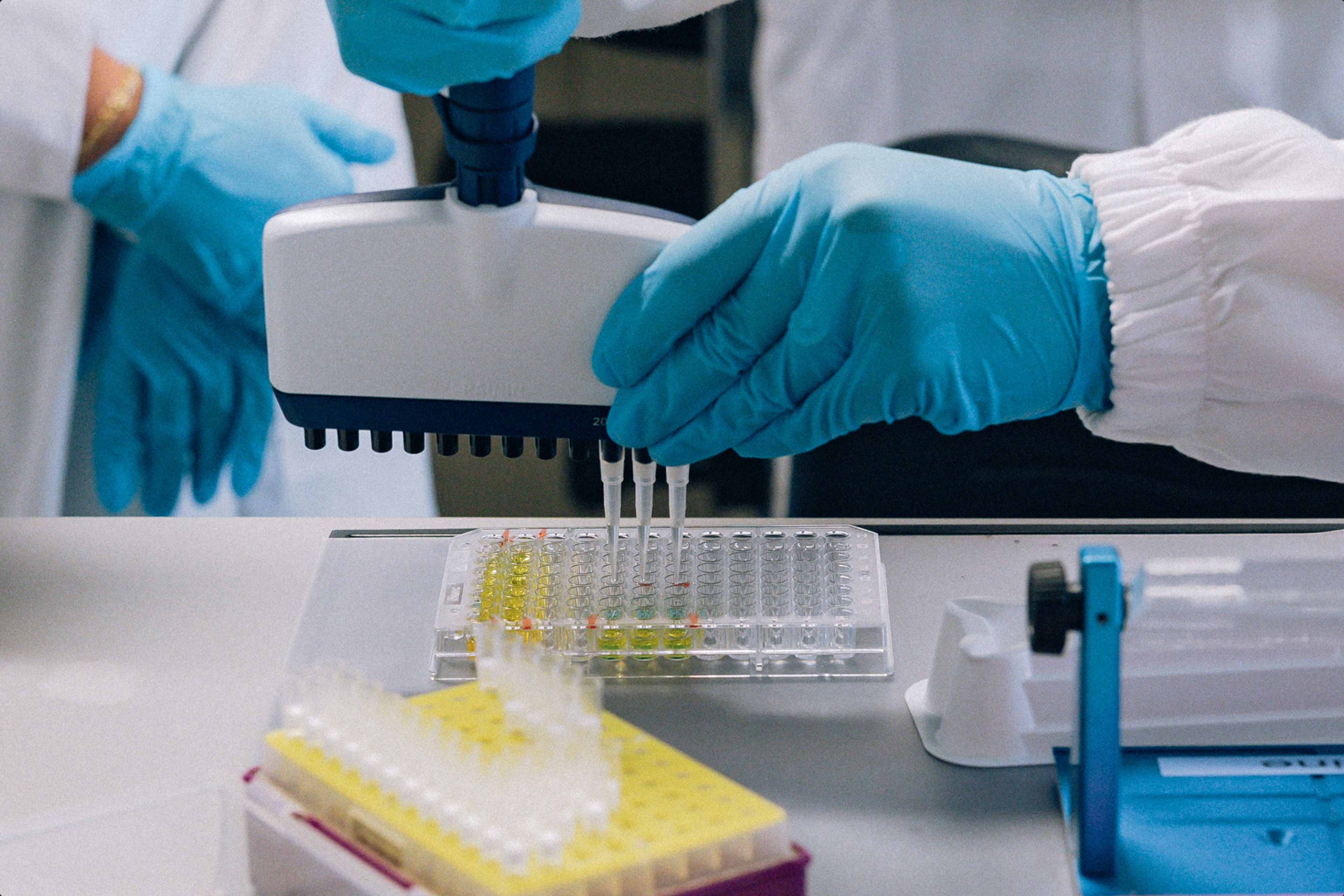
News
·
Nutrition·
Studies·
